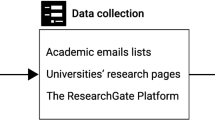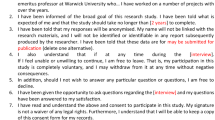Summary
This study, based on two empirical investigations undertaken in Croatia on samples of 320 eminent and 840 young researchers, shows a comparison between the professional values/norms of these groups (normative level of research ethics), as well as a comparison (of perceptions) about the frequency of ethically questionable and unacceptable behaviour of researchers in Croatian research institutions (behavioural level of ethos). Science ethics includes a core of cognitive and social standards about which there is relatively high consensus in both groups of researchers. Their cognitive standards correspond to epistemological realism with an accent on objective, reliable, measurable and precise new knowledge. Their basic social values include the broadest social responsibility, responsibility towards colleagues and students, and professionality in relation with funders and/or clients. Thus, research ethos is a combination of traditional cognitive norms and new socially-engaged values. However, research ethics is not a static or homogeneous set of professional values and norms. Young scientists value cognitive norms relating to basic research lower, but rank some cognitive standards more closely linked with applied empirical research higher. Considering the social dimensions of research ethics, young researchers rate traditional academic values of collegiality, communality and autonomy less important than do eminent scientists, but they hold professionalism and establishing research networks more important. As expected, cognitive and social values and norms are not strictly followed on the level of professional practice. In their everyday professional life eminent and young researchers experience particular questionable research practices that could harm research work and results, and impair collegial relations in science, more often than they encounter breaking social norms that harm or even threaten participants in and users of scientific professional work. Differences in perceiving the incidence of certain kinds of questionable behaviour between the eminent and the young may be attributed to their different professional position and experience.
Similar content being viewed by others
Author information
Authors and Affiliations
Rights and permissions
About this article
Cite this article
Wagner, C. Six case studies of international collaboration in science. Scientometrics 62, 3–26 (2005). https://doi.org/10.1007/s11192-005-0001-0
Issue Date:
DOI: https://doi.org/10.1007/s11192-005-0001-0




